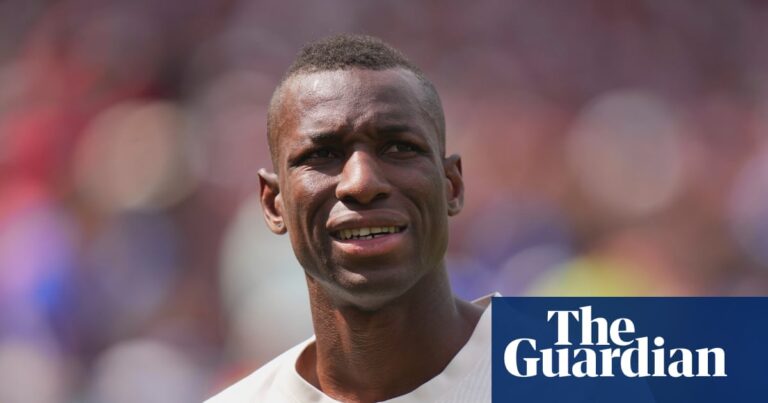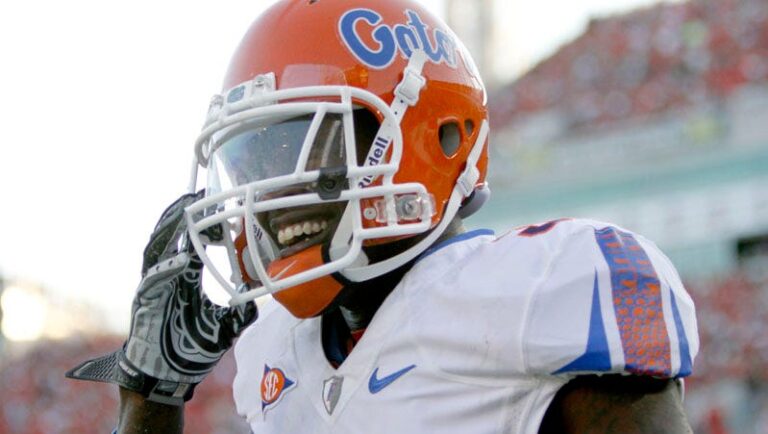
Along a sun-dappled canal towpath in picturesque Hertfordshire countryside, a grey-brown bob rises and falls with the effortless bounce of a lithe, spectacled figure gliding her way past dog-walkers and afternoon ramblers.
There is a watch – one of those smart-technology devices capable of producing all sorts of unnecessary metrics – on Sarah Roberts’s wrist, but she has forgotten to switch it on. Roberts, a grandmother of five, tends not to take note of such things.
When she does go for a run – an occurrence of surprising infrequency – she prefers to be guided by feel; distances and times forgotten upon return to her front door. The fastest 75-year-old woman in history – a multiple world champion and world-record holder – possesses no training logbook, no coach and, most intriguingly, almost zero running pedigree for most of her life.
Asked by the hastily stretching Guardian journalist – foolishly attempting to keep pace for a few miles – how she is capable of launching straight into a run without any semblance of a warm-up, she reveals she only stretches before races “so that I don’t look unprofessional”. Her Great Britain Masters singlet reveals taut muscles and supple limbs that would never have been employed for their current purpose were it not for a holiday to South Africa eight years ago.

Trips there had been a frequent occurrence long before a Cape Town-based friend asked whether Roberts and her husband George would like to join their regular Saturday morning parkrun – the wonderful innovation that welcomes all comers to undertake 5km at whatever pace they choose. Sheltered under trees at the foot of Table Mountain, they savoured this one at no more than a pleasurable amble.
The following week they went again, only this time Roberts ran small segments. On their return to their Hertfordshire home, the couple decided to sign up to their local parkrun. For three years, almost every Saturday morning involved a 5km run, with Roberts converting from running novice to regular attendee, whittling her time down from just shy of 30 minutes to less than 23. Just a few weeks off her 70th birthday, she then took a plunge by joining her local athletics club, Dacorum, and signing up for an 800m race at the end of the summer.
“I was discovering I was really quite good,” she explains after our canal run, while sitting in front of an antique mantel clock in a living room adorned with furnishings from decades gone by.
“That made me think I ought to see whether I could do other things, so I put myself in for an 800. I’d never even been on a track before. The gun went and all I knew is I had to go round twice.
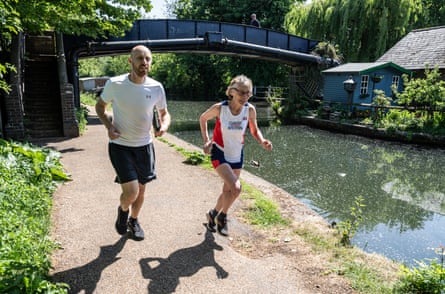
“The only other people in the race were either under-17 or under-15, and then there was me, almost 70. These girls just shot off in the distance looking like gazelles and I ran round. I was way last and didn’t know what time I’d done, but someone told me it was rather good for my age.”
The Covid pandemic dashed almost all running opportunities over the next two years, aside from irregular parkruns when permitted. So, it was not until early 2022 that she was able to contest another 800m, unexpectedly taking the scalp of a multiple global age-group champion in the process. “Nobody had heard of me or expected me to do anything,” says Roberts.
By 2023, she was a double British champion in the 70-74 age group. The following year she won three world titles over 800m, 1500m and 5,000m, before adding four more indoor golds this March.
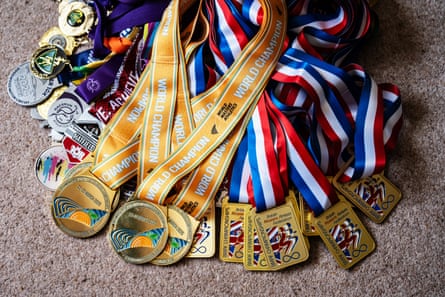
A few years ago, when her gym held a contest to see who could hold the longest plank, Roberts, then just shy of her 70th birthday, tapped out victorious after 10 minutes and 15 seconds. Only boredom, and a lack of genuine challengers, made her stop.
Recently, while hoovering up world titles in Florida, she was approached by researchers who asked to conduct some tests on her. They found her resting heart rate drops as low as 38 beats per minute and her VO2 max, which measures the body’s ability to use oxygen during exercise, is 54 – both comparable to an elite athlete generations younger. She awaits full MRI results, but the radiographer who conducted the scans was instantly stunned by the lack of fat running through her legs.
“I feel fitter than I’ve ever felt before, which is fantastic,” she says. “You don’t expect to feel that when you’re 75.”
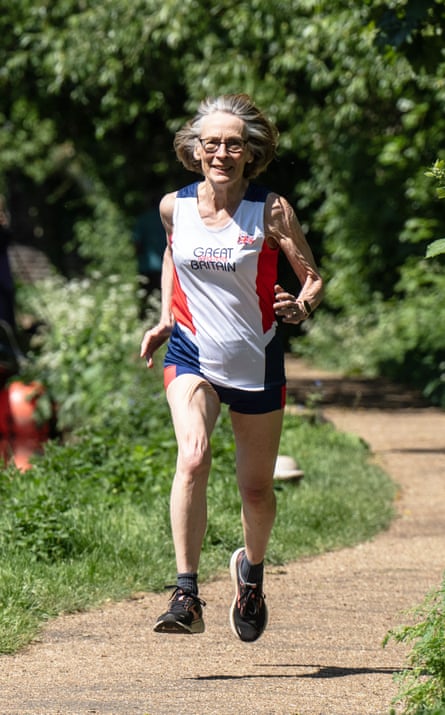
Her formal running training remains minimal. Other than a track session on Mondays and intervals on Tuesdays, her only other regular outing is the trusty Saturday morning parkrun. The remainder of her fitness is cultivated through those daily gym visits. Remarkably, given her advancing years, she is only getting quicker, so far improving her best times every summer since starting to compete. “Whatever I’m doing seems to be working,” she says, smiling.
Having braved that initial 800m race at an age when most would never consider it, she hopes her story may inspire others. What unknown talents lie dormant, just waiting for a chance to emerge?
“I’d like people to think that they should always try something,” she says. “You never know what you can do until you try it. Never think you’re too old. Give it a go. You will surprise yourself at what you can do if you really try to do something.”
Earlier, as we left the towpath and wound our way through the village towards home – one of us sweating considerably more than the other twice his age – two scenarios sprang to mind. One was the thought of what she might achieve with the aid of a properly conceived full-time running regime – a suggestion that Roberts gives short shrift, fully content as she is, with sufficient honours to validate her current approach.
The other was what might have been. Given her apparent physiological advantages – and notwithstanding the paucity of middle and long-distance events open to women until the latter decades of the 20th century – does she wonder what she could have accomplished if made aware of her running prowess at a younger age?
“No, I don’t,” she says. “I’m just very grateful that I’ve discovered it now. I’ve had a good life and enjoyed whatever I’ve done in the past. I don’t go into what-ifs because all the other factors would have been different anyway. But I’m very happy for the current situation.
“I’m just amazed really. I could always run for a bus, but I never thought I would ever be anywhere near the best in the world. It never would have crossed my mind.”

